Pendo Jeremiah is a hard working member of the team at St Jude’s Smith Campus. Not only is she the school registrar, girls welfare and character management mistress she also coordinates the peer mentoring program.
She enthusiastically explains to us what the peer mentoring program involves; “Form 5 girls act as big sisters for the new Form 1 girls, helping them feel connected to the school, supported, offering advice on how to get help, tips and tricks to study and improve their academics and how to deal with problems or issues that may arise.”
In a boarding school such as our Smith Secondary Campus; getting settled in and feeling at home is important. There is no one better to help a new 14 or 15 year old Form 1 student at the secondary school than an older student who has been there before.
When asked what she likes about the program, Pendo Jeremiah’s eyes light up.
“They become like a family, the little ones are connected with the big ones, who offer all sorts of help and advice. Then the older girls who are friends will spend time with all of their little sisters and they all become friends and care about each other”.
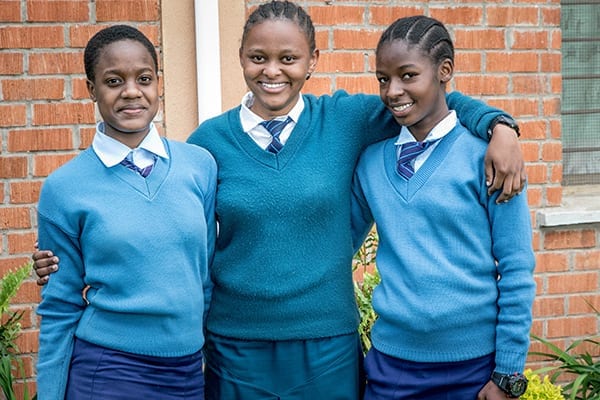
Gloria, one of our Form 6 students likes to help her “sisters” with the academic side of life at The School of St Jude.
“I teach them some difficult subjects they think they cannot do well and I advise them on the right path they can go through as youths”.
This is greatly appreciated. “The one thing I learnt from my sister is that she likes helping the younger ones. Like in class subjects she helps a lot, for example in mathematics!” Vanessa, Form 2, said.
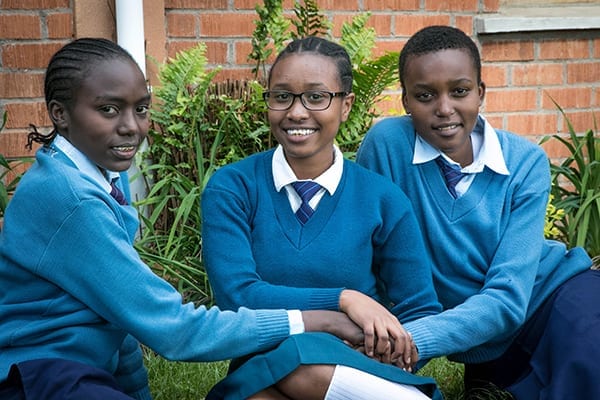
As well as academic success, personal skills such as confidence and team work are important for a St Jude’s student to succeed. This is greatly supported by the peer mentor program as Jackline, in Form 2 explains.
“I learn from my elder sister to be confident because at first I wasn’t confident to talk to all people but I learnt from her. The confidence I have now is from her”.
Students at the school learn many different skills from each other and sometimes the lessons come as a real surprise! Karisma’s was surprised to see her sister, Rahma Form 2 perform at Careers Day.
"From my sister I was inspired by her confidence. The Career day that she went to sing at; her voice was amazing!”
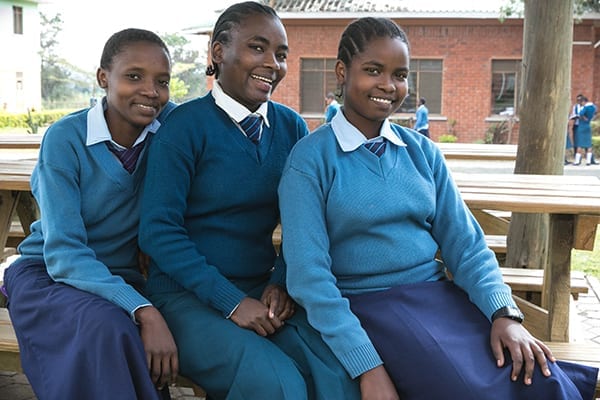
Peer mentors have also inspired their charges with their choice career path.
"The most inspirational thing about my little sisters is that at first I knew I loved children and the younger ones. Since I met them that passion has grown and I keep loving them every day" Gloria, said.
She is inspired to continue working with children, possibly as a teacher.
The shared learning and academic support is also an opportunity to have fun with a new friend. Kareen giggles as she remembers the program’s first day. She tried to stretch her arms over the much taller younger students in her care.
"The funniest day was the first day that I met my little sisters. They are tall and I am short!"
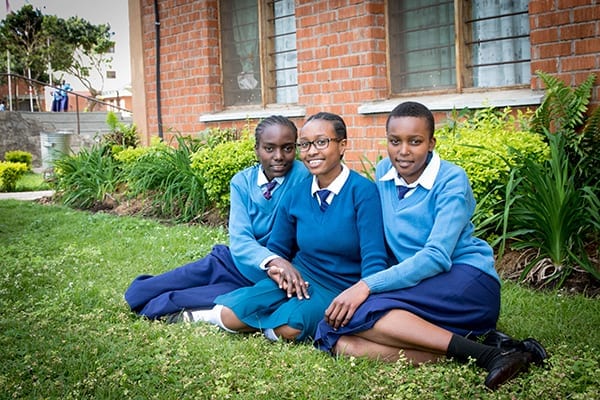
Vanessa remembers the fun her peer mentor friends have shared on the program. "We were playing chasing and she fell over!"
When asked if she helped her sister up off the ground her reply was immediate and delivered with the warmest smile, "Yes I did!"
Boys will also soon be a part of the peer mentoring program. As part of the Girls Welfare Team Pendo Jeremiah initially started the program just for the girls. However, she was soon approached by boys from Form 5 who wanted to be involved.
“The Form 5 boys approached me and said, it’s not fair that the girls get to do this, we want to have this program as well. So that is very good, we are happy when our students show responsibility and that they care about each other,” Pendo Jeremiah said.
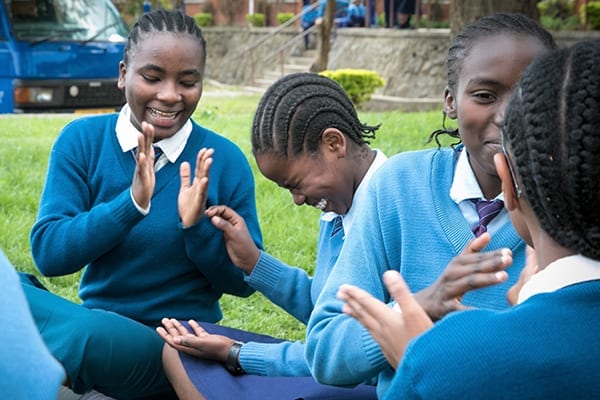
The shared support, laughter and inspiration enjoyed by our students show the peer mentor program to be a huge success! These strong friendships will be treasured memories of a happy time at The School of St Jude.
Support our quality learning environment by making a donation towards Learning Resources.
“A musician must make music, an artist must paint, a poet must write, if he is to be ultimately at peace with himself. What a man can be, he must be.” - Abraham H. Maslow
With this quote, Mr Mshauri, our impassioned career guidance counselor, opened St Jude’s Careers Day 2016!
This year’s theme: ‘Let your artistic talents become your career.’
Careers Day at St Jude’s always boasts an electric atmosphere of enthusiasm and ambition.
In 2016, the excitement was heightened as the celebration of career planning and opportunities was teamed with our annual Cultural Day exhibition.
“It is of the utmost importance that in this day, as with every day, you examine yourself, explore who you are and what you want to become,” Mr. Mshauri said in his opening address,“Tanzania needs you, the best you, you can be”.
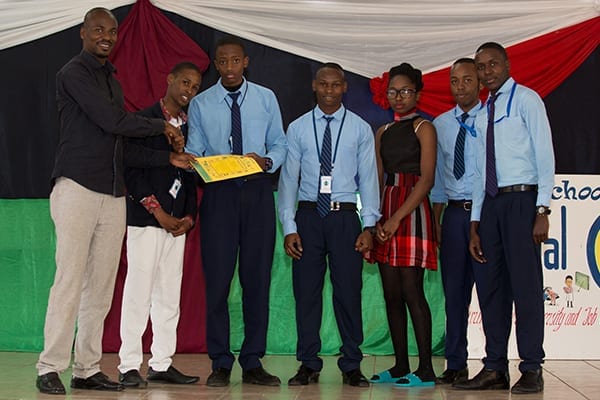
Mr Mshauri spoke on the different industries crying out for a new generation of skilled professionals in Tanzania, particularly national priority sectors such as agriculture, IT and tourism.
He beamed a broad, proud smile introducing the day’s key note speaker, Faith Marunda. Faith recently joined St Jude’s Visitors department after an impressive career across Tanzania’s tourism sector.
The young professional’s address captivated the crowd. Ms Marunda touched on her personal career accomplishments, the flexibility and opportunities available in Tanzanian tourism as well as the challenges facing the sector in the 21st century.
“Whether tourism is your dream or not, it accounts for 20% of our country’s Gross National Product and 90% of that is reliant on international visitors,” Faith said.
“So it is important that all of us in our careers consider our environment and act against climate change. It is all of our responsibility to make sure we conserve our general national brand to encourage sustainable tourism.”
Our students also presented on employment prospects in Tanzania and their own entrepreneurial endeavors.
The most enterprising individuals hosted booths exploring journalism and new media, music production, graphic design, screen printing, architecture, engineering and self-employment.
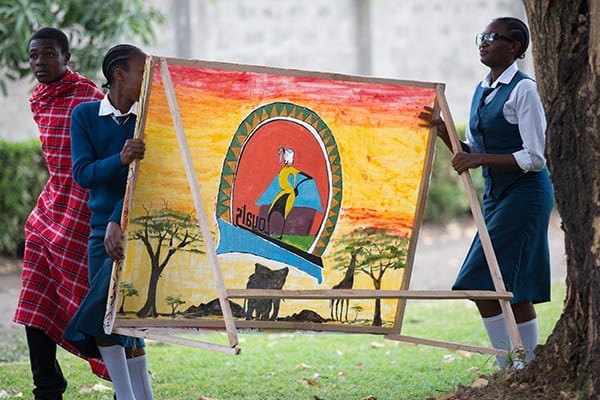
Olson in Form 6 said the day has always been a highlight on the academic calendar.
“We get to meet different people with different careers like doctors and engineers and ask them how is their work, how is their career? And we get a much better understanding of different career paths from those discussions.”
“For me it is difficult because I want to do everything. I want to study anesthetics and also something to do with chemical engineering,” Olson said.
“That is why this day is so good for me. Here at St Jude’s there is everything that a person like me should need to get answers for all the career questions that I have.”
If you want to support our students to become the best they can be – donate today.
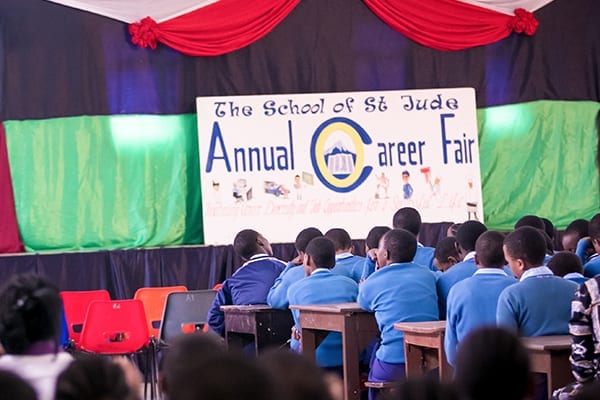
St Jude’s recently celebrated our 7th Annual Cultural Day!
For Cultural Day 2016, our students are letting you know what you should (but probably don’t) know about Tanzanian culture.
“People may know that we have many different tribes with their own traditions, like Maasai, but what they don’t know is that unlike other countries, people in Tanzania are not limited in showing their different cultures. We combine so many different traditions to make one very good national culture.” - Evance, Form 4
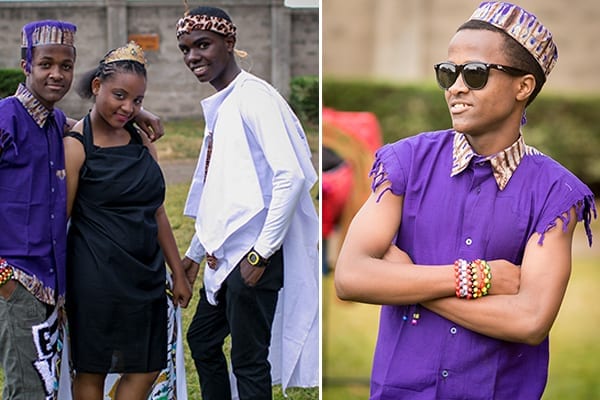
What do you want people to know about Tanzanian culture?
Environment
Tanzania is known for the highest mountain in Africa, Mt Kilimanjaro, the Cradle of Mankind, Olduvai Gorge, and of course the Serengeti.
“I think that people should know how Tanzanian culture is very close to nature, most cultural things are made of nature, handmade and derived from the environment in which people live,” Evance said.
“We have the most protected natural areas and national parks in the world and the most precious wood in our mpingo tree.”
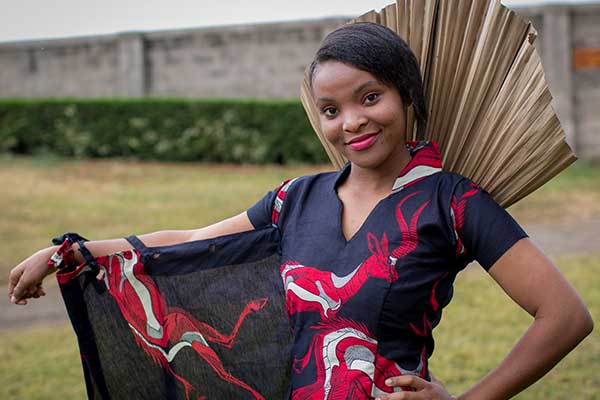
Community
The literal translation of the Swahili word 'undugu' is 'relative', but our students say it means much more than that.
“The most important part of our culture is community, we are all joined together,” Evance said.
“If you get successful you should help those that are behind you so you can also bring them to success. That is the meaning of our word undugu – we should all be like lights to each other.”
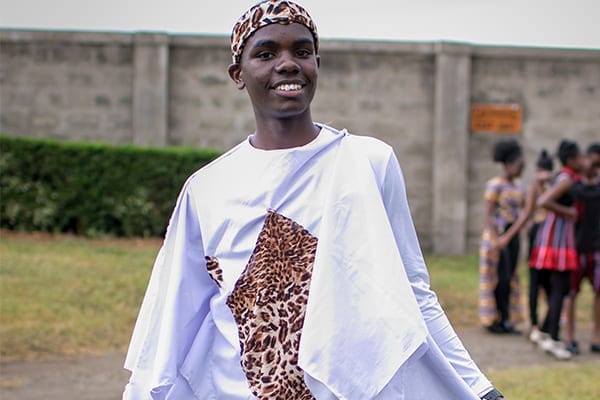
Language
There are over 120 languages spoken in Tanzania. Swahili is the most spoken language, as well as the most spoken African language on the continent.
“I wish more people from outside knew Tanzanian culture through our shared language, it is so special. Our food and dressing style, they can see when they visit, but Swahili is so beautiful, it gives shape to our shared culture and is so full of respect and goodness,” Robert in Form 4 said.
“For example when you meet someone who is older and that you should respect, you say ‘shikamoo’. Its meaning is ‘I kneel to you’.”
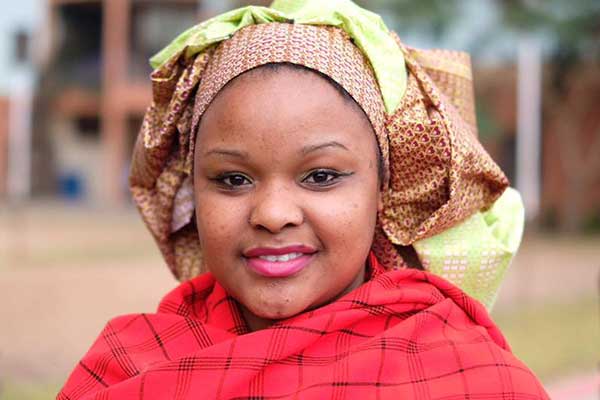
Respect for elders
Honor the elders, even if they are not yours. - Swahili proverb
“It is our culture to respect elders and it is good because they know many things that you do not know yet and they can teach you good and bad things,” Pascal in Form 4 said.
“Our culture is firstly about respect. This means that different religions and classes have peace between each other. It is not possible for fights to happen with other countries because of our culture of respect, everything is settled within ourselves,” Rehema in Form 4 said.
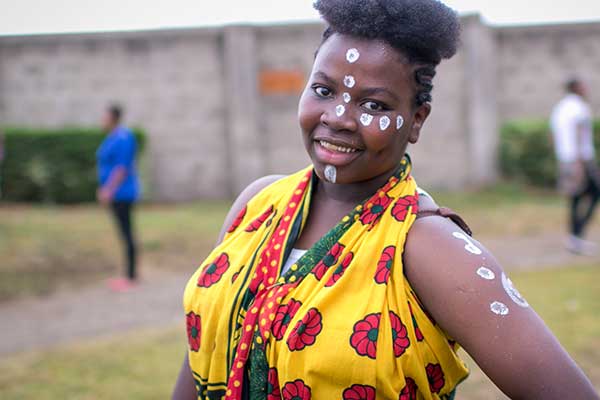
Politics
Tanzania’s first President Julius Kambarage Nyerere, was known as Baba wa Taifa – Father of the Nation. Nyerere was a key player in forming the Organisation of African Unity, which later became the African Union.
“Other countries in the world, when they got independence there was fighting and wars. Tanzania, ever since independence, has been peaceful, there is respect between tribes and religions,” Shani in Form 1 said.
“This is because of the great Julius Nyerere, the father of our nation. He wanted us all to have peace, be proud of our culture and be Tanzanian first and together.”
Travel through time and join us for Cultural Day 2016: Flip through our Flickr album.
Last year, our students, who represent 61 of over 130 tribes in Tanzania, shared some of their respective cultural backgrounds with you.
If you’d like to learn more about Tanzanian culture from our students or see Cultural Day 2017 for yourself – come visit us!
Not many secondary students list their favourite subjects as Biology and Chemistry, but St Jude’s student Irene isn’t your typical secondary student.
In fact, she’s far from it.
This empowered 18-year-old, who one day envisions becoming a doctor, is particularly remarkable for founding her own community organisation, called Feminine Power Association.
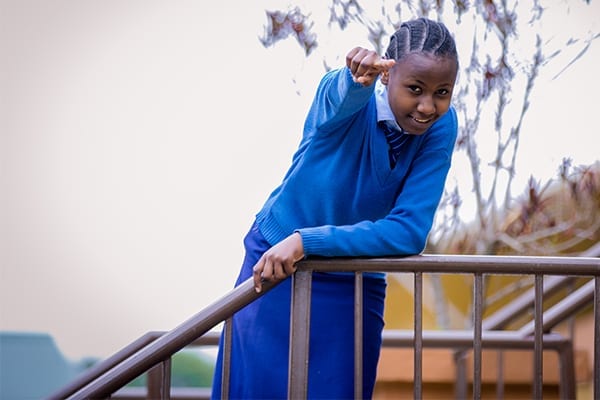
“(It’s) a girls club, where we visit different villages and help people who need support like orphans and elders,” Irene said.
Alongside offering help to those who need it most, the girls also “teach people about human rights and responsibilities, which will have a positive impact on those who most need it”.
“I have learnt much while studying about human rights at St Jude’s, and the responsibilities that we have to the less privileged in society,” Irene explained.
“I was inspired to start the club because of my background, the places I’ve lived and my family and community”.

The enthusiastic Form 4 student, who started at St Jude’s in 2007 in Standard 2 (Grade 2), is excelling both in the classroom and in her community.
Irene’s Civics teacher, Mr Kashowa, helped encourage her decision to start Feminine Power Association. After teaching her for the past two years, he described her as a “bright, hardworking and self-motivated student”.
“She has been doing excellently, not only in Civics but in many other subjects,” he said.
With plans to become a doctor so she can “help the many people who get sick and injured and have a positive impact on her community,” this inspiring student is already helping to make a difference.
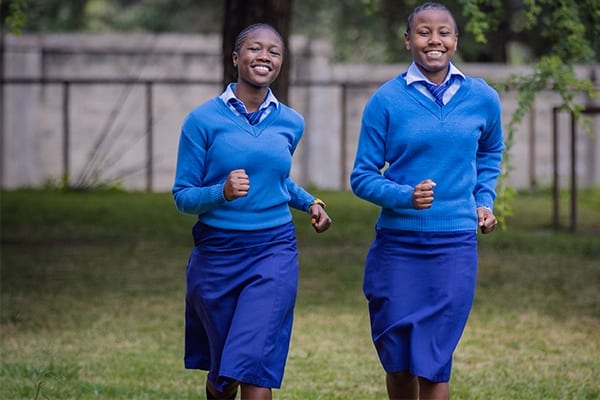
We are not the only ones who have been impressed with Irene’s hard work and dedication. Following in the footsteps of Liston and Daniel, two other St Jude’s high-achievers, Irene has been granted a scholarship to the African Leadership Academy (ALA), to complete a two-year pre-university program with some of the best scholars on the continent.
Irene believes she would not have had the opportunity without St Jude’s.
“Thanks to St Jude’s I’ve learned English, about people who are less privileged in societies and my responsibility to help them,” she said.
“The school has prepared me to be the best student and it is thanks to them that I will succeed.”
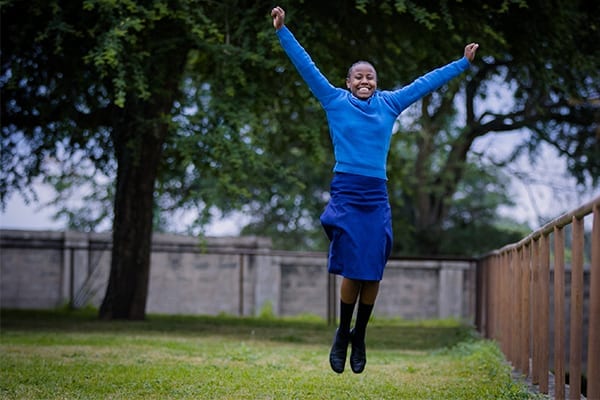
She also wanted to express gratitude to her sponsors, the school management, the teachers and the St Jude’s community at large.
“It’s because of them that I am who I am today, they have contributed to my success, and they have changed me,” she explained. “I wouldn’t be the person I am today without them.”
We wish Irene the very best as she embarks on this new journey and proudly look forward to seeing her flourish as a community-focused leader.
Empower more of our students with a high-quality education – donate today!
After earning an international scholarship for his hard work at St Jude's, Daniel returned recently to mentor his former classmates in entrepreneurship.
The mature, more confident 20-year-old took to the front of the classroom to run the second BUILD in a Box program offered at St Jude’s by former students. BUILD stands for ‘Believe, Understand, Invest, Listen and Deliver’.
Daniel says he really enjoys teaching with BUILD in a Box because it provides a much needed set of tools for young people.
“We teach them how to start a business, how to pitch to investors and how to successfully run a business,” he said. “We condense what we learn at the academy into this two-day program.”
BUILD allows current students to teach youth entrepreneurship, which is seen as a way of finding youth-led solutions to local problems and fighting unemployment.Daniel was particularly impressed with one of the St Jude’s groups who had plans to develop a mobile education tool that also offered access via social media.
“If they manage to create it, it would be very cheap to create and could have a big impact,” he said.
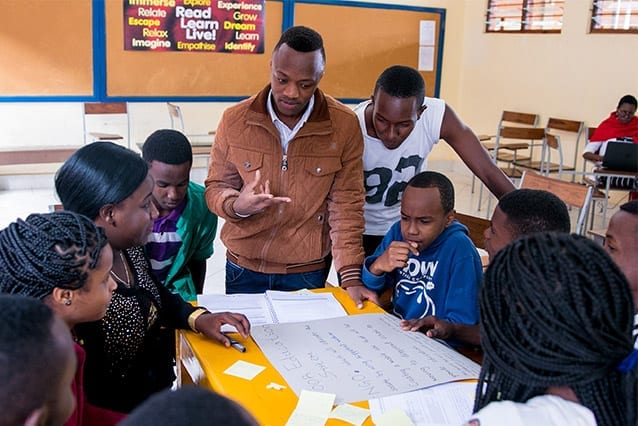
Daniel is living proof of the impact you can make when you provide a high-quality education to the poorest and brightest students.
He was selected for a St Jude's scholarship because of his commitment to school and his parents' inability to pay for his education.
After excelling at St Jude's, Daniel earned an international scholarship and plans to use his education to give back to his community.
Daniel plans to study economics in either the United States or Canada, he wants to “concentrate a lot on business and economic studies and mathematics.”
The dynamic future leader is well on his way to becoming an economics wiz, undertaking an internship this summer at Equity Bank in Dar es Salaam.
The internship is just the next exciting step for a passionate economist who started a microfinance program in his village which helped 30 women raise money to get their children through school and pay for their homes.
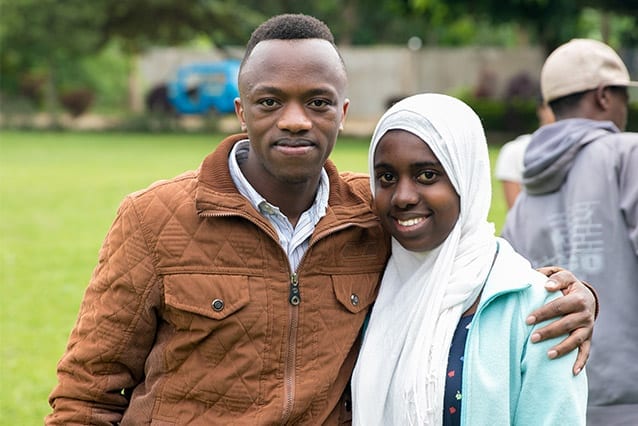
"What really sets St Jude's apart is that it gives you the foundation to succeed in your goals," Daniel says.
"I meet students from different schools all around Africa and when I tell them about my story and St Jude's they are really impressed."
Our 2015 graduates who have been doing their community service through Beyond St Jude's have just completed applications for university and are expected to begin courses later this year.
Their future looks bright. Of last year's graduates who decided they did not need ongoing financial support and applied for university on their own, 100% were successful!
To help St Jude’s continue providing a high-quality education to future leaders sponsor a student today!
Two years was all it took.
Before he was accepted into St Jude’ as a Form 5 student in 2013, most of Emmanuel’s education had been at a government school.
Once he graduated last year, that experience became a driving force in his decision to spend the second half of his Community Service Year helping share his high-quality education with other students in the Arusha community.
“I was feeling worried about it. As a student who had never even been to university, and going there as a teacher, it was a challenge. Now it motivates me and I feel like I can carry myself like other teachers,” Emmanuel said, nearing the end of his six-month teaching stint at Elerai Secondary School.
Emmanuel had initially chosen to work at St Jude’s boarding house for his CSY, but as the half-way mark neared he changed to volunteer at a government school.
“There is a lot to do at government school because of the lack of teachers. So I am now helping students there, and they’re really enjoying having us (CSY teachers),” the 24-year-old Chemistry teacher said.
“I know how those students are, I know the government school environment, so I knew the techniques I would be able to use so that they would understand.
“I like Chemistry, and there was a shortage of teachers in Chemistry there. I am enjoying teaching very much, and I love those students. I can’t imagine the moment I’ll be going (for university), I think most of those students will cry.”
Emmanuel, who is awaiting news of his acceptance into an Agricultural Economics degree at Sokoine University of Agriculture in eastern Tanzania, wants to continue making a valuable impact in Tanzania as the industry “is the backbone of our economy”.
Until then, he explained that a lack of food, chalk and class facilities such as chairs has increased the challenge of teaching.
“The government has decided to provide free education at government schools, but it has not been very practical because they’re not able to provide the facilities,” Emmanuel said.
“The main problem is not being fed at school – they are there from 8am to 3.30pm without having food, so their concentration is a little bit slow. It’s a real challenge. We have to work extra hard so that we can help them understand what we are teaching.”
St Judes’ CSY program is being hailed by many local educators as a desperately-needed solution to Tanzania’s education issues.
“Our school has a big problem with a shortage of Science and Business teachers, so it was a miracle to have our four student teachers from St Jude’s,” Suye Secondary School principal, Sarah Milunga, said.
Four St Jude’s CSY students taught at Suye, the government school in Arusha City: Judica (Commerce and Bookkeeping, Forms 3 and 4); Lubango (Biology, Form 1); Lembris (B Maths, Form 2) and Eliud (Geography, Form 2).
The institute is one of 21 government schools our CSY students have taught at, helping more than 10,000 students with their high-quality educations.
“This is a unique program in our country. These students have shown discipline and hard work in teaching, and all other activities in our school community. They were charming peacemakers who interacted with others easily, they were helpful and friendly to students, and effectively planted educational seeds to students through their positive attitudes, from morning to evening.
“Thanks so much to all students who participated in this wonderful program with compassion. You came to our schools direct from Form 6, without Teachers College, but you did wonders and unforgettable activities in our schools.
“This program helped our school a lot. Thank you very much for introducing it to our generation in education. It is key in the development of Tanzania and a strong weapon in the fight against poverty.”